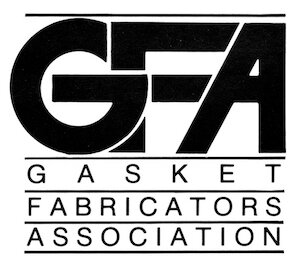AMS Silicone Solid Sheet and Uncured Silicone
ElastaPro offers AMS silicone in solid sheets and uncured silicone compounds. These elastomers meet Aerospace Material Specifications (AMS) from SAE International and are made to strict quality control standards.
What are AMS Specs?
AMS, or Aerospace Material Specifications, are a set of standards developed by SAE International specifically for materials used in aerospace and defense applications. These standards ensure that materials meet precise criteria for composition, mechanical properties, and performance under various environmental conditions. AMS specifications cover a wide range of materials, including metals, alloys, composites, and plastics.
- Purpose: AMS standards aim to ensure the reliability and safety of aerospace vehicles by specifying the characteristics of materials used in their construction.
- Scope: They cover a broad range of materials, including stainless steel, aluminum, and other alloys, as well as composites and plastics.
- Content: AMS specifications detail requirements for chemical composition, mechanical properties (like tensile strength and hardness), heat treatment, and other physical characteristics.
- Examples: Specific AMS numbers might indicate the type of material (e.g., stainless steel), its intended use (e.g., corrosion-resistant), and its specific properties.
AMS specs are crucial for aerospace manufacturers because they provide a common language and a set of requirements for materials, ensuring consistency and reliability in the industry.
What are the Advantages of AMS Silicones?
AMS silicone products are manufactured to deliver consistent quality and high reliability. They offer:
- Resistance to extreme temperatures, from high heat to freezing conditions.
- Durability against environmental factors such as UV exposure, ozone, and moisture.
- Flexibility and resilience, reducing material fatigue over time.
- Compliance with aerospace-grade specifications, ensuring industry-standard performance.
What are AMS Silicone Solid Sheets?
AMS solid silicone sheeting is manufactured to meet strict aerospace standards and arrives ready for die-cutting. It is available in thicknesses ranging from .010” to .500” and in widths of up to 60”. This material is designed for applications requiring high heat resistance, flexibility, and long-term durability.
Manufacturers and engineers rely on AMS silicone sheets for their ability to maintain performance under extreme temperatures. The material resists aging, weathering, and compression sets, making it an excellent choice for seals, gaskets, and insulation components used in high-stress environments.
What is AMS Silicone Uncured Compound?
AMS silicone uncured compound supports molding, extrusion, or calendering to create precision components that meet specific performance requirements. This silicone is delivered in an uncured state and is engineered for processing flexibility, ensuring it meets the exact needs of a given application.
Which AMS Silicones does ElastaPro Make?
ElastaPro’s AMS specification grade silicone materials meet the following AMS specifications:
-
AMS3195
-
AMS3301
-
AMS3302
-
AMS3303
-
AMS3304
-
AMS3315
-
AMS3325
-
AMS3326
-
AMS3327
-
AMS3332
-
AMS3334
-
AMS3335
-
AMS3336
-
AMS3337
-
AMS3338
-
AMS3345
-
AMS3348
-
AMS3349
-
AMS3356
-
AMS3357
AMS Silicone Applications
AMS-compliant silicone is used in aerospace, industrial, military, and electrical applications where durability and heat resistance are essential.
Aerospace Applications
In aerospace, it is commonly found in door and window seals to prevent air leakage and protect against moisture and UV exposure. Firewall gaskets use it to shield components from extreme heat, while landing gear seals rely on its ability to withstand pressure changes and hydraulic fluids. It is also used in engine and exhaust system seals, where resistance to high temperatures and chemical exposure is critical.
Industrial Applications
For industrial equipment, AMS silicone is used in ovens and furnaces as a sealing material that can withstand prolonged high temperatures. In chemical processing, it serves as a protective barrier against aggressive chemicals. HVAC systems use it in ductwork and insulation to improve efficiency, while pumps and valves depend on it to maintain reliable sealing under demanding conditions.
Military and Defense
In military and defense applications, AMS silicone is used in vehicle and aircraft seals to provide protection against harsh environmental conditions, including extreme temperatures, pressure changes, and exposure to fuels and lubricants. It is also applied in weapon systems and communications equipment, where consistent performance is necessary for reliability in the field.
Electronics
Electrical insulation is another key use, as AMS silicone protects sensitive electronics from temperature fluctuations, moisture, and environmental exposure. It is found in wire and cable coatings, circuit board protection, and high-voltage insulation, ensuring stable operation in both commercial and defense-related applications.
High-Performance Silicone Starts Here
Feel free to reach out to us for AMS silicone solutions. Whether you need solid sheets for die-cutting or uncured compounds for custom processing, we have the right material for your needs. Contact us today for a quote or to discuss your project with our team.

